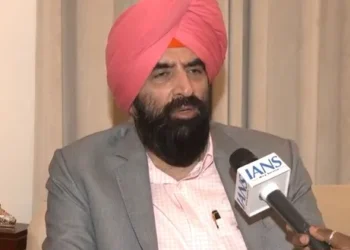Pooja (name changed), a 10-month old baby, developed blisters on hands and feet. Fearing it to be monkeypox infection, the parents rushed the child to a dermatologist, who diagnosed it to be an insect bite reaction.
Pooja is not alone. The news of the monkeypox outbreak in India, along with the pictures of scary blisters and rashes being circulated via social media, news portals, and channels is creating a sense of panic and fear among people who are then increasingly flocking to dermatologists to check for their symptoms, city-based doctors said on Thursday.
“Yes, we are getting a lot of queries regarding people coming in thinking that rashes are monkeypox. While the rashes could be monkeypox, one has to understand that monkeypox will also have other systemic symptoms like fever etc,” Dr Sachin Dhavan, Senior Consultant, Dermatologist at Fortis Memorial Research Institute, Gurugram, who treated the 10-month-old baby, told Media.
“We are getting more queries regarding rashes that may look like monkeypox or pictures that are floated around the internet, with water-filled blisters on the hands and feet, anything like that, which may be an insect bite or which may be an allergy or a rash. People are getting confused and worried about it,” he said.
According to Dr Ramanjit Singh, Senior Consultant, Dermatology, Medanta Hospital, Gurugram, “people who have acne on their face or back are also getting scared if the lesions are of monkeypox or not”.
“There are other skin disorders like scabies or even molluscum where the lesions may look like monkeypox skin lesions but there is nothing to worry, as the disease also presents other symptoms along with skin lesions,” he added.
But can the increasing influx to dermatologists play a role in spotting the disease?
“Dermatologists can play a definite role in early diagnosis of the disease,” Dr. Vijay Singhal, Senior Consultant, Dermatology, Sri Balaji Action Medical Institute, told Media.
“It is because many physicians do not have an idea of other blistering disorders like chickenpox, pemphigus vulgaris, bullous pemphigoid, and herpes. Just by looking, a skin specialist can, in 90-95 per cent cases, rule out whether a skin condition is monkeypox or not,” said Singhal, who also referred a patient with “an unusual blister”, this week, to the Maulana Azad Medical College for further identification of the disease.
More than 18,000 monkeypox cases have now been reported to WHO from 78 countries and five deaths in Africa. India has so far recorded 4 confirmed cases of the virus, including one in the national capital; and a few suspected cases.
Monkeypox is a rare viral disease, related to smallpox and cowpox. The virus generally causes pimple or blister-like lesions and flu-like symptoms such as fever. The lesions typically concentrate on the arms and legs, but in the latest outbreak, they’re showing up more frequently on the genital and perianal area, especially among men who have sex with men.
However, anyone can get exposed to monkeypox virus. “Transmission can also happen in households through close contact with people such as hugging, kissing and using contaminated towels or bedding,” the World Health Organisation has said.
The UK Health Security Agency (UKHSA) stated that a single lesion or lesions on the genitals, anus and surrounding area, lesions in the mouth all can indicate monkeypox infection. Anal or rectal pain and bleeding, known as proctitis, especially if the individual has had a new sexual partner recently can also signal the disease.
In addition to these, high fever, chills, headache, exhaustion, muscle aches (myalgia), joint pain (arthralgia), backache, and swollen lymph nodes (lymphadenopathy) are also indicative of a possible infection.
“If you have any doubt, of course, it’s very very important that you show it to a dermatologist as well as your paediatrician or a physician,” Dhavan said.
“Monkeypox is a communicable disease that gets transmitted through direct contact with body fluids and large respiratory droplets so we need all precautions but we should not panic but we need care of health so eat healthy, exercise and boost your immunity,” Dr. Manju Kesari, Senior Dermatologist at Max Hospital, New Delhi, told Media.























